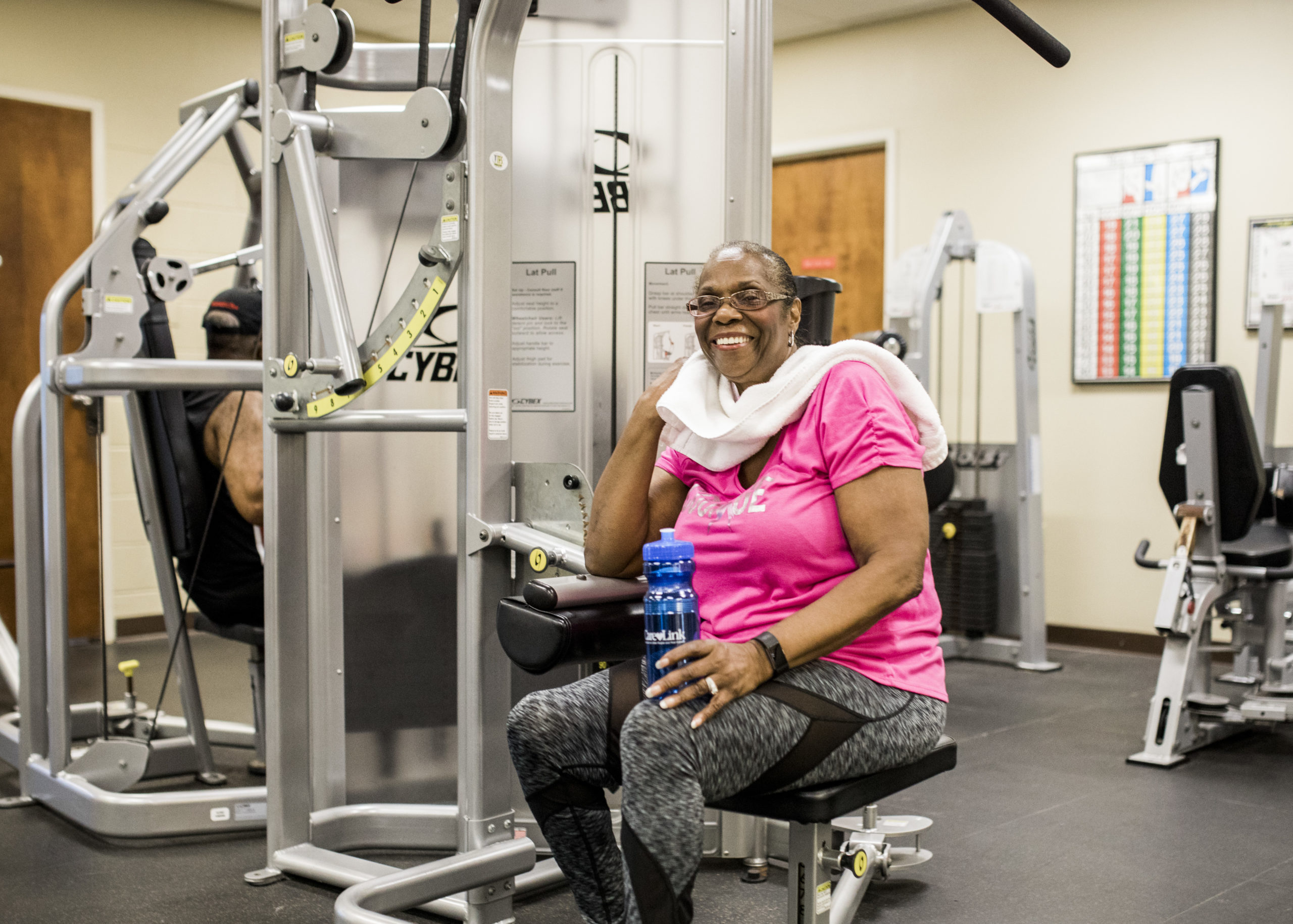As you begin to age, exercise is more important than ever before. Consistent exercise can boost energy, maintain your independent and manage symptoms of illness and pain. Exercise can even REVERSE some of the symptoms of aging. Exercise is not only good for your body but your mind, mood and memory as well!
5 Myths About Exercise and Aging
- Myth 1: There’s no real benefits of exercise, especially for older people.
- Fact: Exercise and strength training helps you look and feel younger and stay active longer. Regular physical activity lowers your risk for a variety of conditions, including Alzheimer’s, dementia, heart disease, diabetes, colon cancer, high blood pressure and obesity.
- Myth 2: Individuals my age shouldn’t exercise. They should save their strength and rest.
- Fact: Research shows that a sedentary lifestyle is unhealthy for adults, including those over 50. Inactivity often causes individuals to lose the ability to do things on their own and can lead to health issues, doctor visits and use of medicines for illnesses.
- Myth 3: Exercise puts me at risk of injury or falling down.
- Fact: Regular exercise, by building strength and stamina, actually reduces your risk of injury or falls! It helps improve both bone mass and balance.
- Myth 4: It’s too late. It doesn’t make sense for me to start exercising at 50+.
- Fact: It’s never too late to start focusing on your health! If you’ve never exercised before, or if it’s been a while, start with light walking and other gentle activities.
- Myth 5: I have a disability or other mobility issue. I can’t exercise sitting down.
- Fact: Chair-bound people face special challenges but can lift light weights and stretch. Many individuals with disabilities are still able to participate in chair aerobics to increase their range of motion, improve muscle tone and increase cardiovascular health.
Physical Health Benefits of Fitness Over 50
- Exercise helps older adults maintain or lose weight. As metabolism naturally slows, maintaining a healthy weight can become a challenge. Exercise helps increase metabolism and builds muscle mass, helping to burn more calories. When your body reaches a healthy weight, your overall wellness will improve.
- Exercise reduces the impact of illness and chronic disease. The many benefits of staying active over 50 include improved immune function, better hearth health, improved bone density and increased digestive functioning. People who exercise also have a lowered risk of several chronic conditions including Alzheimer’s disease, diabetes, obesity, heart disease and osteoporosis.
- Exercise increases mobility, flexibility and balance. It improves strength and posture which, in turn, will help with coordination and reduce the risk of falls.
Mental Health Benefits of Fitness Over 50
- Exercise improves your sleep. We all know quality sleep is important for your overall health. Exercise can help you fall asleep more quickly and sleep more deeply.
- Exercise boosts mood and self-confidence. Endorphins produced by exercise can help you feel better and reduce feelings of sadness or depression. Being active and feeling strong naturally helps you feel more sure of yourself.
Tips for Getting Started Safely
- Committing to a routine of physical activity is one of the healthiest decisions you can make. Before you get moving, though, consider how best to be safe.
- Get medical clearance from you doctor before starting an exercise program, especially if you have preexisting condition. Ask if there are any activities you should avoid.
- Consider health concerns. Keep in mind how ongoing health issues may affect your workouts. For example, individuals with diabetes may need to adjust the timing of medication and meal plans when setting an exercise schedule.
- Start slow. If you haven’t been active in a while, it can be harmful to go “all out.” Instead, build up your exercise program little by little. Try spacing out workouts during the course of a day. Or try just one exercise class per week.
- Commit to an exercise schedule for at least 3 or 4 weeks so that it becomes a habit.
- Stay motivated by focusing on short-term goals, such as improving your mood or energy levels rather than goals such as weight loss which can take longer to achieve.
